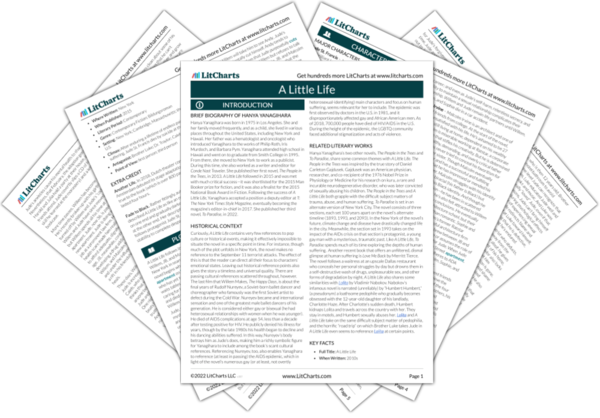AI ToolsNew
Tools to make learning and teaching easier
|
Previous
Part 1: Lispenard Street: Chapter 2
|
A Little Life: Part 1: Lispenard Street: Chapter 3 Summary & Analysis |
Next
Part 2: The Postman: Chapter 1
|


Upgrade to unlock the analysis and theme tracking for all of A Little LifeA Little Life!
Get LitCharts A+